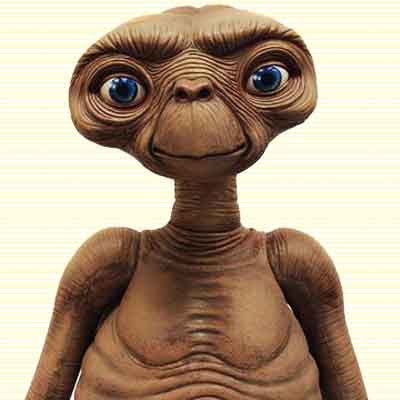NASA, ET and the Vatican
Joseph P. Farrell
 I’m taking an odd chance today to blog about a story that caught my eye over the Christmas break, and that I had fully intended to blog about, and then the heart attack happened. But I still want to blog about it, and as I mentioned, I will do as many blogs/week as I am capable. That may add up to zero, or seven, I do not know. Today at least I have a little residual energy. so here we go. I’m taking an odd chance today to blog about a story that caught my eye over the Christmas break, and that I had fully intended to blog about, and then the heart attack happened. But I still want to blog about it, and as I mentioned, I will do as many blogs/week as I am capable. That may add up to zero, or seven, I do not know. Today at least I have a little residual energy. so here we go.
Many of you noticed this story and passed it along, so I’d like to thank all of you for doing so. What’s the story? NASA, it seems, is hiring “theologians” to help it determine what to do in case “we” encounter “them” “out there” in the future. But there’s a catch, and it makes me very skeptical:
NASA ‘looks to the heavens’ for help: Agency enlisted 24 theologians to assess how the world would react to the discovery of alien life on distant planets and how it might change our perception of gods and creation
Note that one “theologian” is a biochemist:
The Rev Dr Andrew Davison, a priest and theologian at the University of Cambridge with a doctorate in biochemistry from Oxford, …
and another is a Jesuit astronomer (though not mentioned as part of NASA’s panel):
In 2008, the Vatican’s chief astronomer says there is no conflict between believing in God and in the possibility of ‘extraterrestrial brothers’ perhaps more evolved than humans.
‘In my opinion this possibility (of life on other planets) exists,’ said Rev. Jose Gabriel Funes, a 45-year-old Jesuit priest who is head of the Vatican Observatory and a scientific adviser to Pope Benedict.
‘How can we exclude that life has developed elsewhere,’ he told the Vatican newspaper L’Osservatore Romano in an interview in its Tuesday-Wednesday edition, explaining that the large number of galaxies with their own planets made this possible.
Asked if he was referring to beings similar to humans or even more evolved than humans, he said: ‘Certainly, in a universe this big you can’t exclude this hypothesis’
And then finally, we have the usual bow to an American Baptist to remind people of just how backward those confessions are:
Albert Mohler, president of Southern Baptist Theological Seminary, said in a 2008 interview when asked if there are such thing as aliens: ‘The answer is no; that’s speculative.
‘We have no reason to believe there is any other story out there. There is nothing in Scripture that says there can’t be some form of life somewhere. But what we are told is that the cosmos was created in order that on this planet Jesus Christ, in space and time and history, would come to save sinful humanity.’
You’ll have noted that the Baptist is, in fact, the only recognizable theologian in the bunch because he likes to talk about standard types of Christian things, like the Incarnation itself. I disagree – profoundly – with his “take,”, but nonetheless, his take is at least recognizably Christian.
But with NASA, I noticed a distinct tendency in the choice and selection, one that suggests to me that NASA is far more intent on controlling a narrative – with the Vatican’s help – than it is exploring any really deeply theologically argued answers to its questions. Questions like – oh, I don’t know – the meaning of the terms ousia and physis in dogmatic definitions, and whether or not they refer to species, phyla, order and so on(directly related to the question at hand); or whether the ancient microcosmism, and the “cosmological passages” of some Scripture like Romans 8:19-22ff have implications for such questions, or “How Might the Cappadocian Fathers have addressed the question?” My point with all of this is that NASA doesn’t even know such questions, or people, exist. It has done what the West always does: Default to Roman Catholicism for an answer, not realizing that the answer may and probably will change depending on whom one asks. This does not mean that there is confusion, but rather, nuance, and NASA does not want nuance, and it certainly does not want to confer with the only terrestrial space power out there that not only has a space program, but a church with an equally long tradition as the Vatican.
So colour me skeptical here: an institution (the papacy), that can justify burning people alive for their viewpoints, that can turn its back on its own centuries of liturgical tradition at Vatican II in order to reinforce its claims about itself, and gut the faith of millions of its own followers in the process, is not in institution I'm inclined to listen to on the matter, especially since NASA does not seem to know how to ask the right questions in the right order, and as I used to try to tell my theological students way back when, the right questions, in the right order, are always crucial to theology.
See you on the flip side...

Born and raised in Sioux Falls, South Dakota, Joseph P. Farrell has a doctorate in patristics from the University of Oxford, and pursues research in physics, alternative history and science, and "strange stuff". His book The Giza DeathStar was published in the spring of 2002, and was his first venture into "alternative history and science". Following a paradigm of researching the relationship between alternative history and science, Farrell has followed with a stunning series of books, each conceived to stand alone, but each also conceived in a pre-arranged sequence:
gizadeathstar.com
| 



